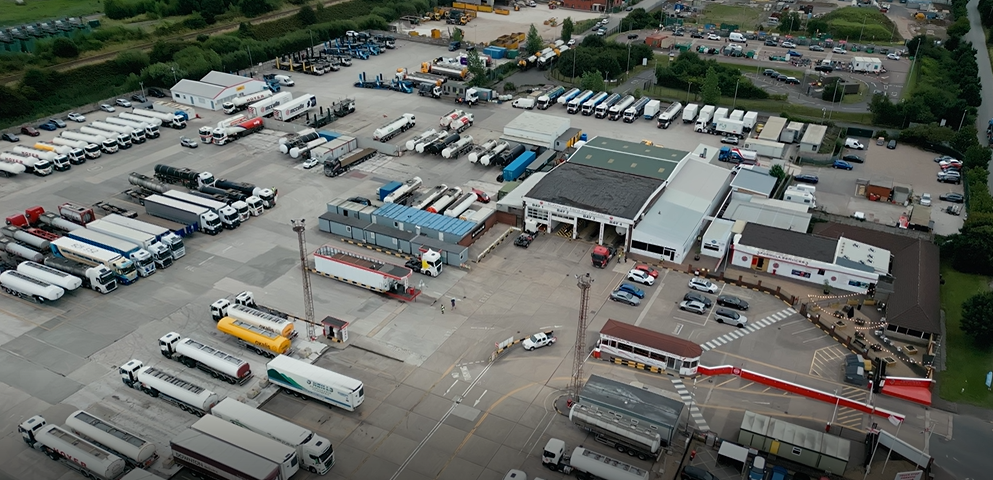
Miranda Blake
Directive sur le temps de travail des conducteurs : Un guide pour les conducteurs de camions
Créée: 25/10/2024
•
Mise à jour : 29/10/2024
En tant que conducteur de camion au Royaume-Uni, il est essentiel de bien comprendre les réglementations complexes relatives aux heures de travail et aux périodes de repos des conducteurs. La directive sur le temps de travail des conducteurs (DTT), également connue sous le nom de directive sur le transport routier, est un ensemble de règles qui régissent le nombre maximal d'heures qu'un conducteur peut travailler, les pauses obligatoires qu'il doit prendre et les périodes de repos qu'il doit respecter. Le non-respect de ces règles peut entraîner de lourdes amendes, voire l'immobilisation du véhicule.
Comprendre la directive sur le temps de travail des conducteurs
La directive sur le temps de travail des conducteurs est une législation de l'Union européenne qui vise à garantir la sécurité de tous les usagers de la route en prévenant les accidents liés à la fatigue. Les [règles relatives aux heures de conduite] (https://snapacc.com/newsroom/discover-the-new-drivers-hours-rules/) s'appliquent aux conducteurs de véhicules de plus de 3,5 tonnes, qu'ils travaillent au Royaume-Uni ou dans l'Union européenne.
Limites journalières de conduite
En vertu de la directive sur le transport routier, les conducteurs de camions au Royaume-Uni sont soumis à une limite de 9 heures de conduite par jour, qui peut être portée à 10 heures deux fois par semaine au maximum. Après 4,5 heures de conduite continue ou intermittente, les conducteurs doivent prendre une pause d'au moins 45 minutes. Ils peuvent également opter pour une pause fractionnée, la première étant d'au moins 15 minutes, suivie d'une seconde d'au moins 30 minutes.
Restrictions de conduite hebdomadaires et bimensuelles
Les chauffeurs routiers britanniques sont soumis à une limite de conduite hebdomadaire de 56 heures, tandis que la limite bimensuelle est de 90 heures. Cela signifie que si un conducteur effectue 56 heures en une semaine, il ne peut travailler que 34 heures la semaine suivante pour ne pas dépasser la limite de 90 heures par quinzaine.
Capes de temps de travail
Outre les restrictions relatives au temps de conduite, la directive sur le temps de travail impose également des limites au nombre total d'heures qu'un conducteur peut travailler par semaine. Le temps de travail hebdomadaire moyen, comprenant à la fois les tâches de conduite et les autres tâches, ne doit pas dépasser 48 heures, calculées sur une période de référence de 17 ou 26 semaines. Le temps de travail maximal au cours d'une même semaine est de 60 heures, à condition que la moyenne de 48 heures ne soit pas dépassée.
Périodes de repos
La directive sur le temps de travail exige que les conducteurs de poids lourds (https://snapacc.com/newsroom/how-to-become-an-hgv-driver/) prennent un temps de repos journalier d'au moins 11 heures consécutives, qui peut être divisé en deux périodes, la première devant durer au moins 3 heures. Les conducteurs peuvent également opter pour un temps de repos journalier réduit à neuf heures, mais ils ne peuvent le faire que trois fois par semaine. En outre, une période de repos hebdomadaire d'au moins 45 heures est obligatoire, mais elle peut être ramenée à 24 heures une fois par période de deux semaines.

Exemptions
Si la directive sur le temps de travail s'applique à la majorité des chauffeurs routiers britanniques, certaines exceptions peuvent s'appliquer dans des circonstances spécifiques. Par exemple, ceux qui ne conduisent pas plus de 10 fois au cours d'une période de 26 semaines ou 15 fois au cours d'une période de plus de 26 semaines peuvent ne pas être tenus de contrôler leur directive sur le temps de travail.
Conséquences de la non-conformité
Le non-respect de la directive sur le transport routier peut avoir de graves conséquences pour les conducteurs et les [opérateurs de flotte] (https://snapacc.com/fleet-operators/). Les conducteurs pris en flagrant délit d'infraction peuvent se voir infliger des amendes allant jusqu'à 1 500 livres sterling. S'ils enfreignent les règles plus de cinq fois en 28 jours, ils peuvent être traduits en justice et voir leur véhicule immobilisé.
Pour les opérateurs de flotte, il s'agit de maintenir la conformité dans l'ensemble de la flotte. S'ils négligent de mettre en œuvre des mesures suffisantes pour contrôler et faire respecter la directive WTD, la DVSA peut leur adresser un avis d'amélioration et, dans les cas extrêmes, leur demander de cesser leurs activités jusqu'à ce que les problèmes soient résolus.
Importance des solutions de gestion de flotte intégrées au tachygraphe
Pour gérer efficacement les heures de travail des conducteurs et garantir le respect de la directive sur le temps de travail, les exploitants de flottes devraient envisager d'investir dans des solutions de gestion de flottes intégrées au tachygraphe. Ces technologies spécifiques permettent de surveiller efficacement le comportement des conducteurs et d'enregistrer automatiquement les données relatives à la conduite et au temps de travail, de sorte qu'il est pratiquement impossible de passer inaperçu en cas de non-respect de la législation.
En s'associant à un fournisseur de confiance comme [SNAP] (https://snapacc.com/), les opérateurs de flottes peuvent tirer parti d'outils de gestion de flottes de pointe et accéder à un réseau complet de partenaires de services, en s'assurant que leurs conducteurs disposent du soutien dont ils ont besoin pour rester en conformité et en sécurité sur la route.
Impact de la pénurie de conducteurs
Il faut également tenir compte de la [pénurie de conducteurs] (https://snapacc.com/newsroom/hgv-drivers-challenge-the-term-driver-shortage/) au Royaume-Uni. Il s'agit d'un problème majeur pour le secteur. Le secteur a connu une baisse du nombre de chauffeurs de poids lourds - la pandémie a retardé 30 000 examens pour les nouveaux chauffeurs, et le Brexit a durement touché les entreprises de flotte - de nombreux chauffeurs de camions européens quittant le Royaume-Uni.
Un rapport 2023 du SNAP suggère que le secteur pourrait atteindre un "point de basculement" dans les 10 à 15 prochaines années. Il pourrait s'avérer que la directive sur le temps de travail des conducteurs est exactement ce dont le secteur a besoin pour rendre la profession à nouveau désirable et offrir un meilleur équilibre aux conducteurs. Pour en savoir plus sur ce qui peut être fait pour remédier à la pénurie de conducteurs, [lire le rapport] (https://snapacc.com/tipping-point/).



